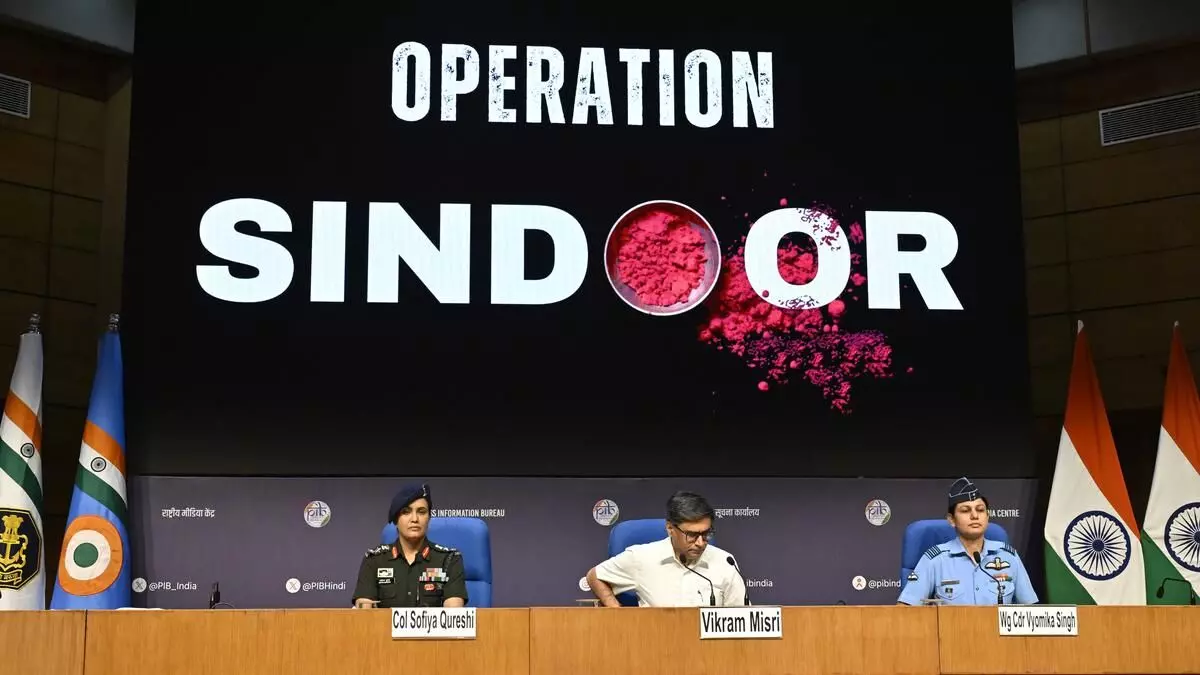Three Lashkar Terrorists Killed in J&K’s Shopian During Operation Keller; Two Identified
Three Lashkar-e-Taiba terrorists were killed in Shopian, J&K, during Operation Keller. Two have been identified as key operatives involved in past terror attacks, including the killings of tourists and political figures.
Three Lashkar Terrorists Killed in J&K’s Shopian During Operation Keller; Two Identified

In a significant counter-terror operation, three Lashkar-e-Taiba (LeT) terrorists were neutralized by security forces during Operation Keller in the Shopian district of Jammu and Kashmir on Tuesday. The encounter took place in the Shoekal Keller area, following credible intelligence inputs received by the Rashtriya Rifles Unit.
The Indian Army, supported by Jammu and Kashmir Police and paramilitary forces, launched a cordon-and-search operation (CASO) early in the morning, which escalated into a fierce gunfight. The operation was part of intensified security measures in the Valley post the recent spate of terror attacks.
Terrorists Identified
Two of the slain terrorists have been identified:
Shahid Kuttay, son of Mohammad Yousuf Kuttay, was a resident of Chotipora Heerpora, Shopian. A Category-A LeT operative, he joined the outfit on March 8, 2023.
He had been involved in multiple acts of terror:
April 8, 2024: Opened fire at Danish Resort, injuring two German tourists and a driver.
May 18, 2024: Assassinated a BJP Sarpanch in Heerpora.
February 3, 2025: Suspected involvement in the killing of a Territorial Army soldier in Behibagh, Kulgam.
Adnan Shafi Dar, son of Mohammad Shafi Dar, hailed from Wanduna Melhora in Shopian. A Category-C LeT recruit, he joined on October 18, 2024, and was involved in the same-day killing of a non-local labourer at Wachi, Shopian.
The identity of the third terrorist is yet to be confirmed. Security agencies are conducting forensic tests and verifying biometric data to establish his identity.
Strategic Backdrop
The operation comes amidst heightened tensions between India and Pakistan following the April 22, 2025, terror attack in Pahalgam, which claimed multiple civilian lives. In response, India launched Operation Sindoor on May 7, targeting terror infrastructure across the Line of Control (LoC).
In retaliation, Pakistan carried out drone strikes on civilian and military locations in Jammu & Kashmir, Punjab, Rajasthan, and Gujarat. Indian defence systems intercepted most drones, but the provocation led to fears of a full-scale conflict between the two nuclear-armed neighbours.
Although both sides briefly agreed to a ceasefire, violations were reported within hours—particularly in Srinagar and adjacent border regions.
Policy Shift
The Indian government has since hardened its position. A senior official declared:
“Any future act of terror originating from across the border will be treated as an act of war and responded to with full military force.”
This marks a significant doctrinal shift in India's counter-terrorism policy, setting clear red lines for Pakistan-based terror outfits.
Aftermath and Search Operations
Post-encounter, a cache of arms and ammunition, including AK-47 rifles, grenades, and communication devices, was recovered from the site. Search operations in the region are ongoing to locate potential sympathisers or hidden caches.
The successful elimination of these terrorists, particularly high-value targets like Kuttay, is seen as a tactical win for Indian forces in their continued fight against insurgency in the Valley.

